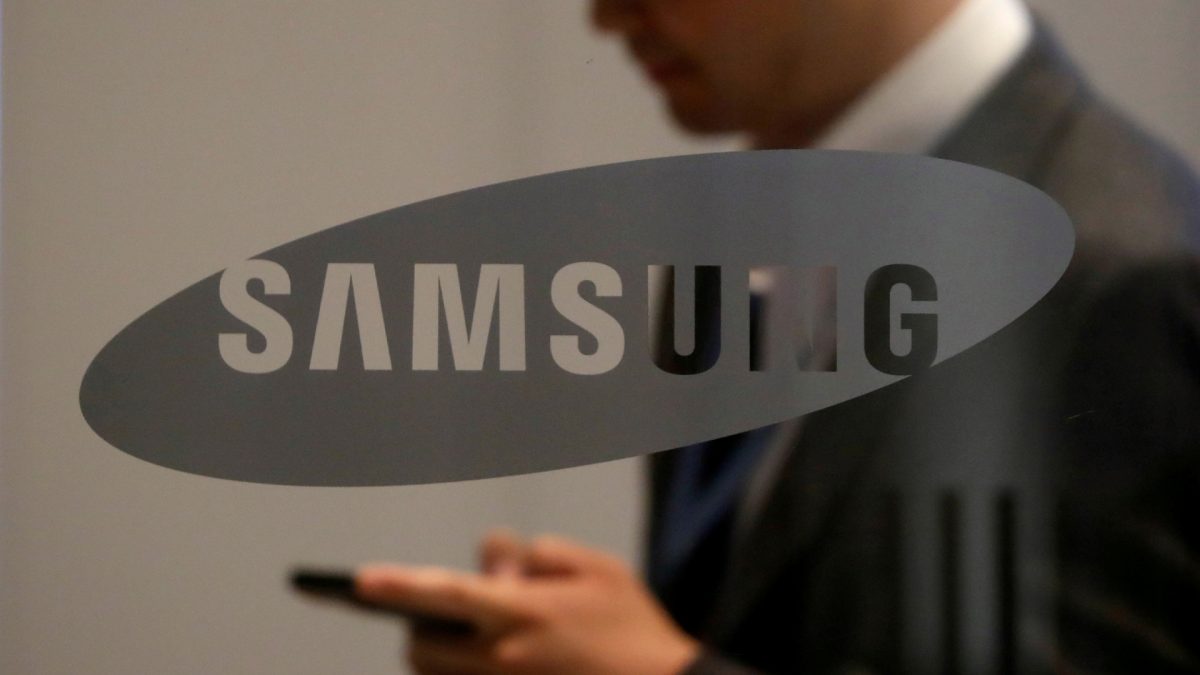Last month, the union’s first strike involved a coordinated mass walkout using annual leave, which Samsung claimed had no effect on business operations. On Monday, Samsung again reported no production disruptions read more
)
Samsung’s share price saw a modest increase on Monday, reflecting investor confidence after last week’s preliminary earnings exceeded analyst expectations. The stock reached its highest point since January 2021, buoyed by a strong performance in the chip market. Image Credit: Reuters
Samsung Electronics is dealing with a three-day strike that began on Monday as workers push for better pay. The National Samsung Electronics Union (NSEU), representing about 30,000 members—nearly a quarter of the company’s South Korean workforce — is demanding not only higher wages but also an extra day for really dim off, leave for unionized workers and changes to the employee bonus system.
Despite the strike, analysts believe that the impact on production at the world’s largest memory chipmaker will be minimal.
The low participation rate and automated production processes are cited as reasons for this. However, the strike still highlights growing dissatisfaction among employees, particularly at a time when the chip industry is focusing heavily on artificial intelligence.
Last month, the union’s first strike involved a coordinated mass walkout using annual leave, which Samsung claimed had no effect on business operations. On Monday, Samsung again reported no production disruptions.
This time, the union announced that 6,540 workers would participate in the strike, primarily those at manufacturing sites and involved in product development. They noted that the strike includes workers responsible for monitoring automated production lines and equipment, suggesting that operations could be impacted.
EUnion president Son Woo-mok countered media reports of low participation, explaining that the union, which is only five years old, has not had sufficient time to fully educate its members about the issues. He believes the participation rate is reasonable for such a young union.
Vice president Lee Hyun-kuk warned that further strikes could occur if Samsung does not meet the union’s demands. The current proposals from Samsung offer flexibility in pay and leave conditions but fall short of the union’s expectations for increased pay and leave. Additionally, the union is calling for a more equitable bonus system.
They pointed out that while executive bonuses are based on personal performance goals, rank-and-file workers’ bonuses are calculated by deducting the cost of capital from operating profit.
An engineer named Park Jun-ha, who joined Samsung in January, expressed disappointment with the company’s opaque bonus scheme, stating that he no longer feels proud to work there.
The union’s influence has grown since Samsung committed in 2020 to stop discouraging organized labour. This rising voice within the company comes as Samsung faces stiff competition in the chip market, especially for those used in AI applications. Despite these challenges, Samsung reported a significant increase in second-quarter operating profit, thanks to rebounding chip prices driven by the AI boom.
Samsung’s share price saw a modest increase on Monday, reflecting investor confidence after last week’s preliminary earnings exceeded analyst expectations. The stock reached its highest point since January 2021, buoyed by a strong performance in the chip market.

 2 months ago
25
2 months ago
25
)
)
)
)
)
)
)
)
)
)
)
)
)
)
)
)
)
)
)
)
)
)
)
)
 English (US) ·
English (US) ·